In threatening Ukraine, the goal of the Russian Federation is to attack European democracy, the country’s Ambassador to the U.S. Oksana Markarova told CBS News.
“The reason why Putin attacked us is not because he wants Ukraine or only Ukraine. The reason he attacked us is because we have chosen to be a democracy and we have the Euro-Atlantic and European aspirations. So it’s an attack on democracy, and I believe nobody is safe if Ukraine will be attacked,” she added.
Denys Semyroh-Orlyk, a 46-year-old architect, has a message for Russia: “We will never surrender. We are using every opportunity to train. So I think Putin should be afraid of us,” The Wall Street Journal’s Jillian Kay Melchior reports:
He speaks from the woods on the outskirts of the Ukrainian capital on a frigid Saturday in January, alongside a large group of camouflaged civilians. They’re training to defend their city and resist a Russian occupation. Their weapons are decoys, at least at the session I attended, but their ferocity is genuine and aimed straight at the enemy. They practice an attack and counterattack, making a stark contrast with Kyiv residents taking their dogs out for a morning walk.
 The training session reveals much about the strength of Ukraine’s civil society and the citizenry’s determination to remain independent from Russia, Melchior adds.
The training session reveals much about the strength of Ukraine’s civil society and the citizenry’s determination to remain independent from Russia, Melchior adds.
Has German’s refusal to supply arms to Ukraine weakened democratic unity in facing up to Putin?
Critics say Berlin has failed to grasp the enormity of the threat Russia poses to Ukraine, The Financial Times reports:
They worry that Germany, which draws 55 per cent of its imported gas from Russia, cares more about the impact sanctions will have on its economy than about forming a united front against Moscow. Some NATO countries have even begun to doubt that Berlin is a reliable partner…..
German officials are in private aware of the damage the arms issue is causing. “It’s a classic case where German principle collides with alliance politics,” says one. “It raises the question — what kind of ally are you?”
“How many people in Berlin are actually aware of the massive damage our confused Ukraine policy is doing, not only to Germany but the whole of the EU?” says Wolfgang Ischinger, a former top German diplomat and head of the Munich Security Conference.
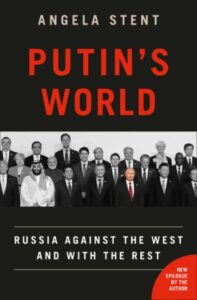 Tellingly, Russia’s major successful military operations under Mr. Putin — the defeat of Georgia in 2008 and the annexation of Crimea in 2014 — happened when the West was looking the other way, adds Yulia Latynina, a journalist for Echo of Moscow and Novaya Gazeta. In both cases, the world was caught unawares and Russia could complete its designs without the threat of armed international opposition. That is not the case now, she writes for The Times.
Tellingly, Russia’s major successful military operations under Mr. Putin — the defeat of Georgia in 2008 and the annexation of Crimea in 2014 — happened when the West was looking the other way, adds Yulia Latynina, a journalist for Echo of Moscow and Novaya Gazeta. In both cases, the world was caught unawares and Russia could complete its designs without the threat of armed international opposition. That is not the case now, she writes for The Times.
Putin has served as a model for a new generation of autocratic leaders and populists, says a prominent analyst.
With democratic values under challenge across the world, Putin looks increasingly like a man who foresaw the future of global politics rather than a relic from the past, The FT’s Gideon Rachman adds:
The Russian leader has attracted fans and emulators who admire his ruthlessness, his willingness to use violence, his macho defiance of “political correctness” and his autocratic style of leadership. As the Russian commentator Dmitri Trenin put it last week: “Putin is a pre-communist leader . . . He is a tsar.” One great danger of the current Ukraine crisis is that if Putin emerges looking victorious, his style of leadership will gain even more prestige and imitators across the world.
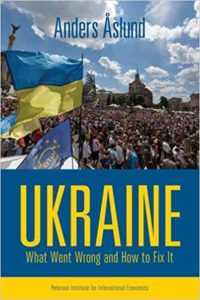 Putin invokes NATO enlargement as a convenient excuse when his real fear is the emergence of successful, democratic, Western-oriented countries along Russia’s borders—especially Ukraine, argue Eric S. Edelman and David J. Kramer.
Putin invokes NATO enlargement as a convenient excuse when his real fear is the emergence of successful, democratic, Western-oriented countries along Russia’s borders—especially Ukraine, argue Eric S. Edelman and David J. Kramer.
Indeed, when Russia’s 2014 invasion began, there was not a single U.S. tank in Europe, and no prospect of U.S. or NATO missiles being deployed to Ukraine (even as the Kremlin deployed Iskander missiles to Kaliningrad). To focus on other countries’ interest in joining NATO as the cause of Putin’s aggression gets it backward: Russia’s neighbors feel the need to look to the West, including to NATO, because of Putin’s revanchist aggression. As Latvian Prime Minister Arturs Krisjanis Karins commented in January, “Moscow is not afraid of NATO forces but Ukrainian democracy,” they write for Foreign Affairs.
If Washington, Berlin, and London had followed revisionist historians’ advice and resisted the entreaties of the countries of Eastern Europe to join NATO, Russian forces would be banging at the doors of Poland and the Baltic states today rather than Ukraine, Stanford University’s Francis Fukuyama writes for American Purpose.
When Russian leaders claim today that NATO has betrayed Russia, they tap into a mythical vein of violated innocence, adds Timothy Snyder, the author of a half-dozen books on Russia and Ukraine, including “The Road to Unfreedom” and “Bloodlands.” On May 27, 1997, Russia signed the NATO-Russia Founding Act. It was acknowledged by all parties at the time that NATO would expand and was open to “all emerging European democracies.” Just four days later, Russia signed a treaty with Ukraine, recognizing its borders, he writes for The Post.
The Russian leader has put a “noose” around Ukraine with his troop build-up along the border and cyberattacks and responded to Western diplomacy with demands that are impossible to meet, Alina Polyakova of the Center for European Policy Analysis (CEPA) says in a new episode of GZERO World with Ian Bremmer (above).
Putin’s mythologizing of the Russia-Ukraine relationship fits a pattern of falsehoods designed to reconstitute imperial glory, and more importantly, to shield Putin from the threat of democracy in former Soviet republics — and possibly in Russia itself, said George Washington University’s Maria Snegovaya, co-author of a National Endowment for Democracy (NED) report on Stifling the Public Sphere.
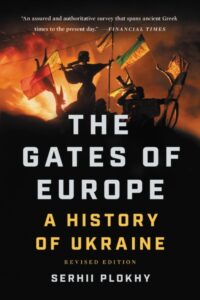 “It looks like Putin is committed to preventing the deepening cooperation between Ukraine and the US/the West,” she told Vox, “which he views as Russia losing Ukraine,” citing his 2021 essay “On the Historical Unity of Russians and Ukrainians” as an example of his thinking.
“It looks like Putin is committed to preventing the deepening cooperation between Ukraine and the US/the West,” she told Vox, “which he views as Russia losing Ukraine,” citing his 2021 essay “On the Historical Unity of Russians and Ukrainians” as an example of his thinking.
Professor Serhii Plokhy, who heads the Ukrainian Research Institute at Harvard, said leaders in Moscow — from Stalin to Putin — have taken different approaches to deal with what they consider the “Ukraine problem.” But most all have alienated Ukrainians, driving them to pursue their own course, he told NPR.
“The sad irony of the situation is that we see Ukraine under attack, with the sovereignty and territorial integrity of the state in question,” said Plokhy, the author of multiple books on Ukraine, including The Gates of Europe: A History of Ukraine.
Though Russia’s major banks already have some level of sanctions on them, if they were put on what officials call the Treasury Department’s “game over” sanctions list, known as the S.D.N. list, the damage to the economy could be profound and long-lasting, The New York Times adds.
Russia’s two largest banks, Sberbank and VTB, are on the list and most Russians pay their mortgages to the former. Sberbank has about a third of the assets in the country’s banking sector, and VTB has more than 15 percent, according to Ms. Snegovaya, a former NED Penn Kemble fellow.
The tricky space that the Biden administration is facing between peace and full-scale military invasion where Russian soldiers march into Kiev, says Stanford University’s Michael McFaul. Putin has a lot of different options for using kinetic force, cyber force, partial, annexation, he tells the Crooked podcast. And if he does something in between, then the Biden administration is faced with what is their calibrated response to that? How do they hold our allies together to be calibrated the way we want?
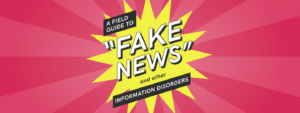 Personal sanctions should also be imposed on a number of leading figures in Putin’s information empire, argues Yevhen Fedchenko, the Chief Editor at StopFake and Director of the Mohyla School of Journalism in Kyiv.
Personal sanctions should also be imposed on a number of leading figures in Putin’s information empire, argues Yevhen Fedchenko, the Chief Editor at StopFake and Director of the Mohyla School of Journalism in Kyiv.
The withdrawal of multinational advertising from Kremlin TV would not be entirely unprecedented either. Indeed, a number of major international companies have already begun adopting a similar approach towards advertising in Belarus in response to the country’s brutal crackdown on a pro-democracy protest movement, he writes for the Atlantic Council.
Berlin continues to believe it exerts unique influence over Moscow which its allies lack, The FT adds.
“Germany has persuaded itself, with Russian encouragement, that it has a special relationship with Moscow and a special responsibility for preserving peace in Europe,” says Ian Bond, director of foreign policy at the Centre for European Reform. “And [it] sees Ukraine’s freely-expressed interest in getting closer to the west as a secondary issue.”
But the crisis “must not be viewed as a contest between large geopolitical entities,” says Oleksandr Sushko, executive director of Ukraine’s International Renaissance Foundation. “It is a contest between freedom and tyranny, and the West must not find itself humming along to the Kremlin’s song.”
 U.S. imposed sanctions against Russia “would hit the Russian economy hard” and “Putin knows it,” said former Ambassador and NED board member Daniel Fried (below), who was in charge of coming up with the sanctions against Russia in 2014.
U.S. imposed sanctions against Russia “would hit the Russian economy hard” and “Putin knows it,” said former Ambassador and NED board member Daniel Fried (below), who was in charge of coming up with the sanctions against Russia in 2014.
But sanctions will also likely have a negative impact on the West’s economies, analysts caution.
“At some point, the West will have to sacrifice a little bit of its well-being if the goal is to deter Putin,” said Snegovaya, a visiting scholar at George Washington University and co-author, with Anders Åslund, of a 2021 Atlantic Council report, The impact of Western sanctions on Russia and how they can be made even more effective.
“U.S. inflation further constrains the administration’s actions,” she added. “Inflation is already unprecedented for the last 30 years. Any action against Russia that is dramatic will lead to changes in oil and gas prices.”
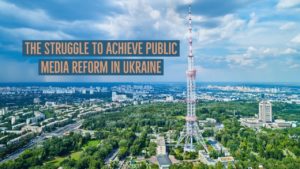
National Endowment for Democracy
Germany is particularly sensitivities over the issue of sanctions, The FT reports.
“Today, Germany is the biggest western power with real, substantial interest in economic ties with Russia,” says Dmitri Trenin, head of the Carnegie Moscow Centre. “Thus it will lose the most through sanctions on Russia, unlike the US and the UK, who will lose next to nothing.”
On the other hand……
“The German discourse on Russia has changed a lot over the past 10-12 years — it’s become much more critical,” says Sabine Fischer of the SWP, Germany’s leading foreign policy think-tank. She cites Germany’s 2020 decision to treat Alexei Navalny, the Russian opposition leader, after he was poisoned by nerve agent — in what he claimed was an assassination attempt ordered by the Kremlin. “The poisoning of Navalny had huge resonance in German society, as has the whole crackdown on civil society in Russia,” she tells The FT.
Closing the door to NATO for Ukraine and Georgia—while many Russian guns are pointed at Ukraine—would be a terrible mistake, punishing two countries that have already suffered thanks to Putin while rewarding the Russian leader for his aggression, add Edelman and Kramer:
 Neither may be joining the alliance imminently, but keeping the possibility alive signals that NATO does not recognize Putin’s claim to a sphere of influence. Rather than pointing out how distant Ukraine’s hopes of joining NATO are, the Biden administration should take a very different approach: reiterate the traditional open-door policy; point out that a democratic Russia would be a potential member; make statements that address Swedish and Finnish concerns about whether the door remains open to them; and insist that Russia live up to its existing international obligations before negotiating any additional confidence-building measures or limitations on conventional forces.
Neither may be joining the alliance imminently, but keeping the possibility alive signals that NATO does not recognize Putin’s claim to a sphere of influence. Rather than pointing out how distant Ukraine’s hopes of joining NATO are, the Biden administration should take a very different approach: reiterate the traditional open-door policy; point out that a democratic Russia would be a potential member; make statements that address Swedish and Finnish concerns about whether the door remains open to them; and insist that Russia live up to its existing international obligations before negotiating any additional confidence-building measures or limitations on conventional forces.
The Commission on Security and Cooperation in Europe, aka the Helsinki Commission, hosts a hearing: Russia’s Assault on Ukraine and the International Order: Assessing and Bolstering the Western Response. Witnesses will examine the latest developments in the Kremlin-driven crisis in and around Ukraine and the urgency for the United States to bolster Ukraine’s defenses and deter further Russian aggression:
- Panel One: Ambassador Michael Carpenter, Permanent Representative of the United States of America to the Organization for Security and Cooperation in Europe (OSCE).
- Panel Two: Dr. Fiona Hill, Senior Fellow, Center on the United States and Europe, Brookings Institution; Lieutenant General (Retired) Ben Hodges, Pershing Chair, Center for European Policy Analysis; Ambassador (Retired) William B. Taylor, Vice President, U.S. Institute of Peace.
Wednesday, February 2, 2022. 2:30 p.m. Dirksen Senate Office Building
Room 562. Watch live here







